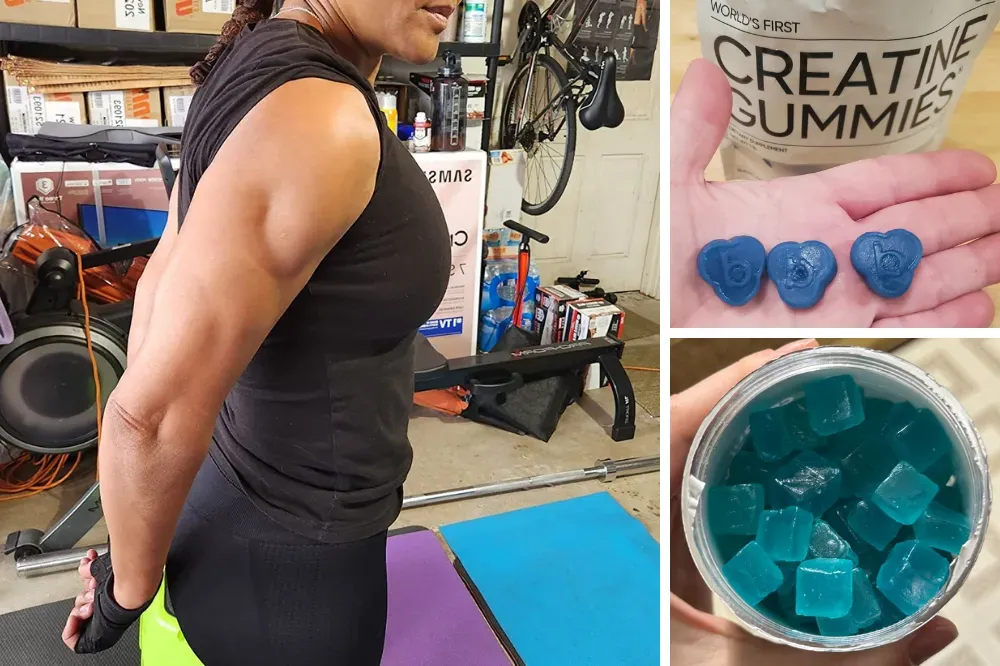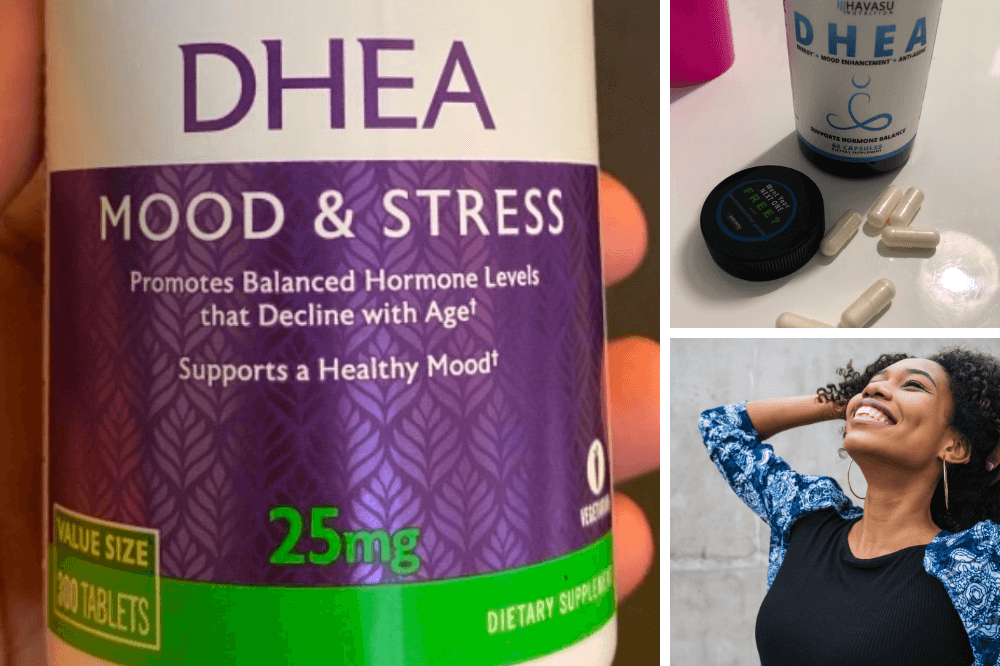Key Takeaways:
- Creatine HCl and Monohydrate: Understand the differences, benefits, and potential side effects of these two popular forms of creatine supplements.
- Scientific Evidence: Explore the scientific evidence supporting the use of creatine HCl and monohydrate for muscle growth, strength gains, and sports performance.
- Practical Insights: Learn about the practical aspects of creatine supplementation, including recommended dosages, loading phases, and personal preferences.
Introduction to Creatine Supplements
Creatine supplements have become a staple in the fitness community, known for their ability to enhance muscle growth, strength, and overall athletic performance. Among the various forms of creatine available, creatine monohydrate supplements stand out due to their historical significance and extensive research backing, while creatine HCl (hydrochloride) is also popular. This article delves into the differences between these two forms, their benefits, and how to choose the best option for your fitness goals.
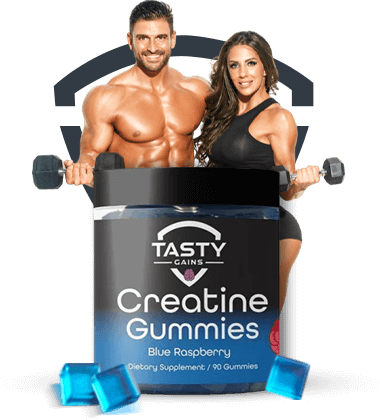
What is Creatine?
Creatine is a naturally occurring compound found in muscle cells. It plays a crucial role in energy production, particularly during high-intensity exercise. The body produces creatine naturally from three amino acids: arginine, glycine, and methionine. However, supplementing with creatine can significantly increase muscle creatine stores, leading to improved exercise performance and muscle growth.
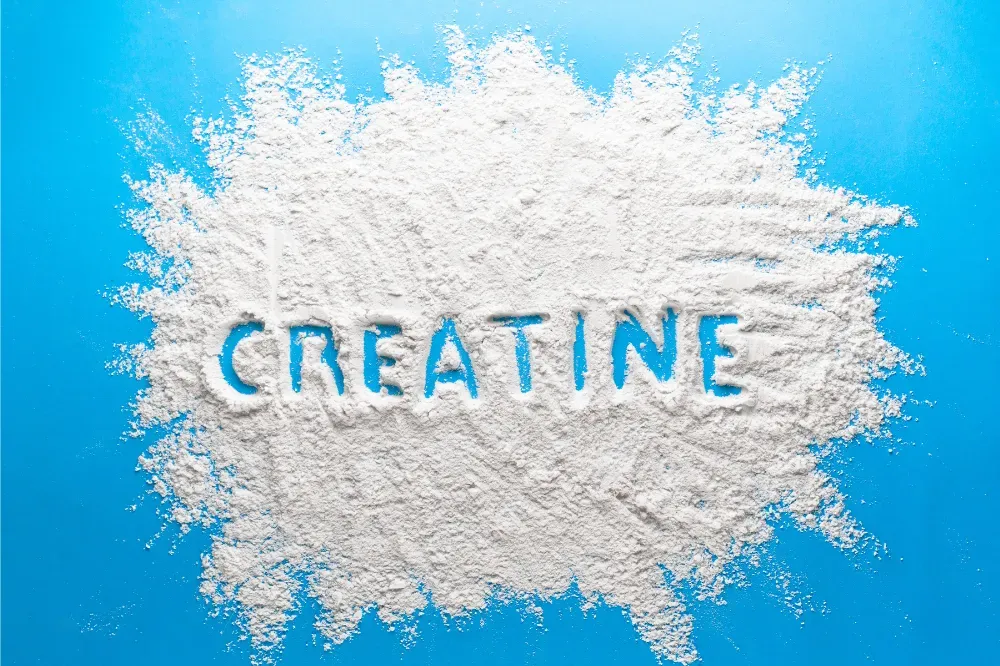
Creatine Monohydrate: The Gold Standard
Creatine monohydrate is the most researched and widely used form of creatine. It consists of a creatine molecule bound to a water molecule. Numerous studies have shown that creatine monohydrate supplementation can lead to significant improvements in muscle strength, power output, and lean muscle mass.
Micronized creatine monohydrate, a refined form of creatine with smaller particles, offers better solubility in water and improved mixing properties compared to other types of creatine.
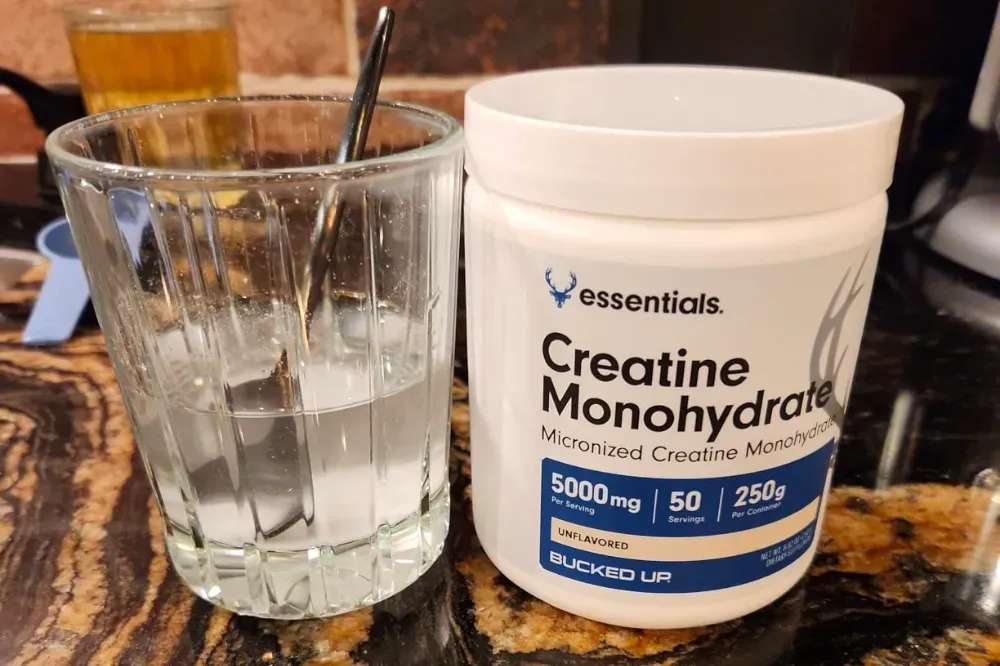
Benefits of Creatine Monohydrate
Creatine monohydrate is known for its ability to increase muscle mass and enhance exercise performance. It helps replenish adenosine triphosphate (ATP) stores in muscle tissue, providing the energy needed for high-intensity training sessions. This leads to greater strength gains and improved overall performance.
Potential Side Effects of Creatine Monohydrate
While creatine monohydrate is generally safe, some users may experience gastrointestinal discomfort, such as bloating and stomach cramps. This is often due to the water retention that occurs when creatine pulls water into muscle cells. However, these side effects are usually mild and can be minimized by taking creatine with plenty of water.
Creatine HCl: A Newer Form of Creatine
Creatine HCl, or creatine hydrochloride, is a newer form of creatine that has gained popularity for its superior solubility and absorption. It is created by attaching a hydrochloride group to the creatine molecule, which enhances its solubility in water and reduces the likelihood of gastrointestinal discomfort.
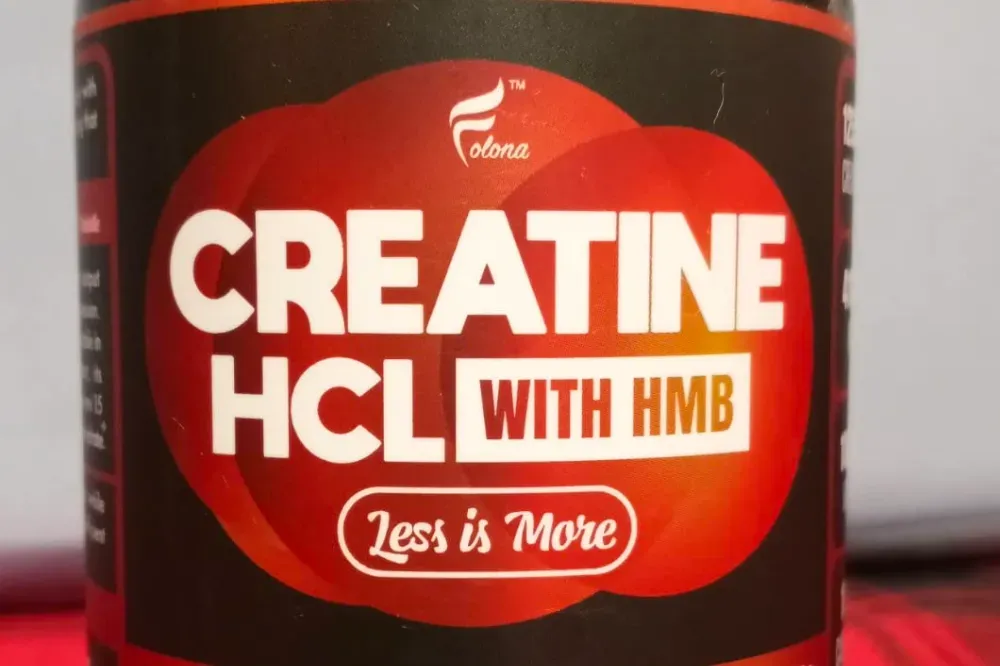
Benefits of Creatine HCl
Creatine HCl offers several advantages over creatine monohydrate. Its greater solubility means it dissolves more easily in water, making it easier to mix and consume. Additionally, creatine HCl is often taken in smaller doses, reducing the risk of stomach discomfort and water retention.
Potential Side Effects of Creatine HCl
Although creatine HCl is generally well-tolerated, some users may still experience mild side effects, such as stomach discomfort or cramping. However, these side effects are typically less common and less severe compared to creatine monohydrate.
Comparing Creatine HCl and Monohydrate
When comparing creatine HCl vs monohydrate, several factors come into play, including solubility, absorption, dosage, and potential side effects. Creatine HCl is known for its better solubility and absorption, while creatine monohydrate is backed by more extensive research and proven effectiveness. In the debate of creatine monohydrate vs. HCl, the extensive research supporting creatine monohydrate makes it the recommended choice for beginners.
Solubility and Absorption
Creatine HCl has a significant advantage in terms of solubility and absorption. Its hydrochloride group enhances its solubility in water, making it easier to mix and consume. This also leads to better absorption in the body, potentially providing faster and more efficient results.
Dosage and Loading Phase
Creatine monohydrate typically requires a loading phase, where users take higher doses for the first few days to saturate muscle creatine stores. After the loading phase, a maintenance dose is taken. In contrast, creatine HCl does not require a loading phase and can be taken in smaller doses, making it more convenient for some users.
Scientific Evidence Supporting Creatine Supplementation
Numerous studies have demonstrated the effectiveness of creatine supplementation for increasing muscle mass, strength, and exercise performance. Both creatine HCl and monohydrate have shown positive effects, although creatine monohydrate has been studied more extensively.

Muscle Growth and Strength Gains
Creatine supplementation has been shown to enhance muscle growth and strength gains, particularly when combined with resistance training. Creatine helps replenish ATP stores in muscle cells, providing the energy needed for intense workouts and promoting muscle protein synthesis.
Sports Performance and Endurance
Creatine supplements are also known for their ergogenic benefits, improving sports performance and endurance. By increasing muscle creatine stores, creatine helps athletes perform better during high-intensity exercise, leading to significant improvements in power output and overall performance.
According to reputable studies and the International Society of Sports Nutrition, creatine is a critical component in the sports nutrition landscape, playing a significant role in improving mood, muscle recovery, and overall athletic performance.
Practical Aspects of Creatine Supplementation
When it comes to creatine supplementation, factors such as dosage, timing, and personal preferences must be considered. In the debate of HCl vs. monohydrate creatine, creatine HCl may require smaller doses and cause fewer gastrointestinal side effects, while creatine monohydrate has a well-established safety and efficacy profile backed by extensive research. Both creatine HCl and monohydrate can be effective, but individual responses may vary.
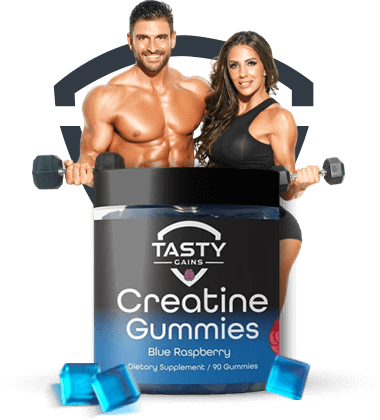
Recommended Dosage
The recommended dosage for creatine monohydrate is typically 3-5 grams per day, with a loading phase of 20 grams per day for the first 5-7 days. For creatine HCl, the recommended dosage is usually lower, around 1-2 grams per day, with no loading phase required.
Timing and Frequency
Creatine can be taken at any time of the day, but many users prefer to take it before or after workouts to maximize its benefits. Consistency is key, so it's important to take creatine daily to maintain elevated muscle creatine levels.
Personal Preferences and Tolerability
Individual preferences and tolerability play a significant role in choosing between creatine HCl and monohydrate. Some users may prefer the convenience and reduced side effects of creatine HCl, while others may opt for the proven effectiveness and extensive research supporting creatine monohydrate.
Creatine Monohydrate vs Other Forms of Creatine
In addition to creatine HCl and monohydrate, several other forms of creatine are available, including creatine ethyl ester, creatine nitrate, and creatine magnesium chelate. Each form has unique properties and potential benefits.
Creatine Ethyl Ester
Creatine ethyl ester is a form of creatine that is believed to have better absorption and bioavailability compared to creatine monohydrate. However, research on its effectiveness is limited, and it may not provide significant advantages over other forms of creatine.
Creatine Nitrate
Creatine nitrate is another form of creatine that combines creatine with nitrate, which may enhance blood flow and nutrient delivery to muscles. While preliminary studies suggest potential benefits, more research is needed to confirm its effectiveness.
Creatine Magnesium Chelate
Creatine magnesium chelate is a form of creatine that is bound to magnesium, which may improve its absorption and reduce the risk of gastrointestinal discomfort. However, like other forms of creatine, more research is needed to determine its effectiveness.
Choosing the Best Creatine for Your Goals
When choosing between creatine HCl and monohydrate, it's essential to consider your fitness goals, preferences, and any potential side effects. Both forms of creatine can be effective, but individual responses may vary.
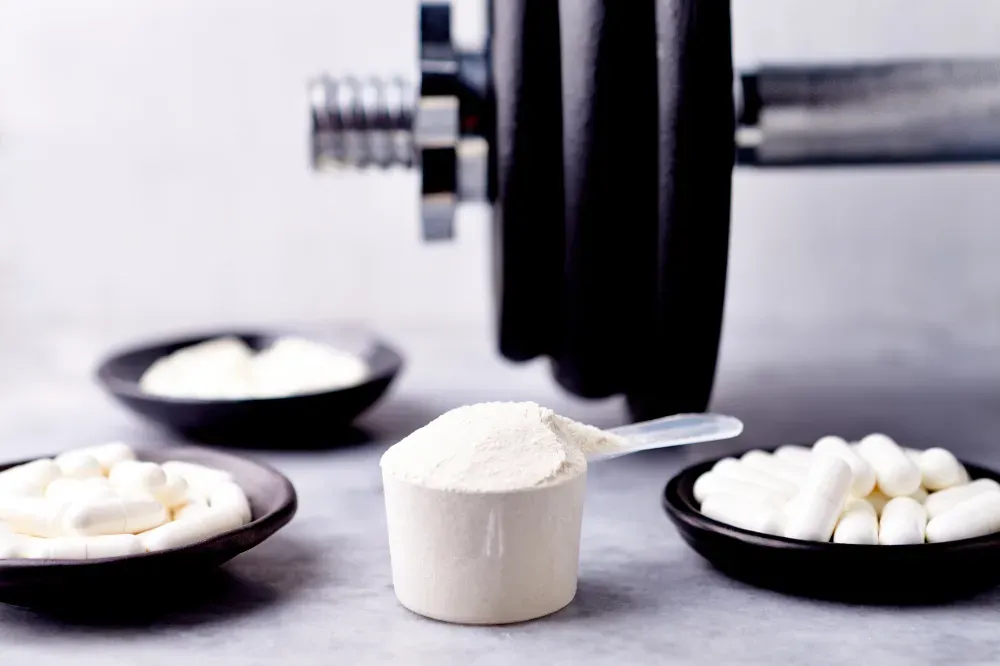
Fitness Goals and Preferences
If your primary goal is to increase muscle mass and strength, creatine monohydrate may be the best choice due to its extensive research and proven effectiveness. However, if you prefer a form of creatine with better solubility and fewer side effects, creatine HCl may be a better option.
Potential Side Effects and Tolerability
When choosing a form of creatine, consider any potential side effects and your personal tolerability. If you experience gastrointestinal discomfort with creatine monohydrate, you may find creatine HCl more tolerable. Additionally, be aware that creatine supplementation can lead to temporary weight gain due to water retention, which is not related to fat or muscle increases.
Practical Tips for Creatine Supplementation
To get the best results from creatine supplementation, follow these practical tips:
Stay Hydrated
Creatine pulls water into muscle cells, so it's essential to stay hydrated by drinking plenty of water throughout the day. This can help minimize any potential side effects and support overall health.
Combine with Resistance Training
For optimal muscle growth and strength gains, combine creatine supplementation with a well-structured resistance training program. This will help maximize the benefits of creatine and support your fitness goals.
Monitor Your Progress
Keep track of your progress by monitoring changes in muscle mass, strength, and exercise performance. This can help you determine the effectiveness of your creatine supplementation and make any necessary adjustments.
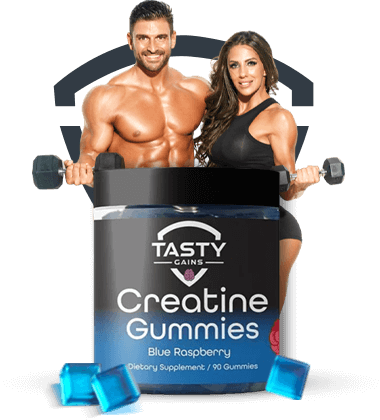
Summary
Creatine HCl and monohydrate are two popular forms of creatine supplements, each with its unique benefits and potential side effects. Creatine monohydrate is the most researched and proven form, known for its ability to increase muscle mass, strength, and exercise performance. Creatine HCl offers better solubility and absorption, making it a convenient option for those who experience gastrointestinal discomfort with monohydrate. Ultimately, the best choice depends on your fitness goals, preferences, and individual response to creatine supplementation.
FAQ
What is the main difference between creatine HCl and monohydrate?
The main difference between creatine HCl and monohydrate lies in their solubility and absorption. Creatine HCl has better solubility and absorption due to the hydrochloride group attached to the creatine molecule, making it easier to mix and consume. Creatine monohydrate, on the other hand, is the most researched form and has been proven to be effective for increasing muscle mass and strength.
Can I take creatine HCl and monohydrate together?
While it is possible to take both forms of creatine together, it is generally not necessary. Both creatine HCl and monohydrate can effectively increase muscle creatine stores and improve exercise performance. It is usually best to choose one form based on your preferences and tolerability.
How long does it take to see results from creatine supplementation?
The time it takes to see results from creatine supplementation can vary depending on factors such as dosage, training intensity, and individual response. Generally, users may start to notice improvements in muscle strength and exercise performance within a few weeks of consistent creatine use. For creatine monohydrate, the loading phase can help accelerate the saturation of muscle creatine stores, leading to faster results.


